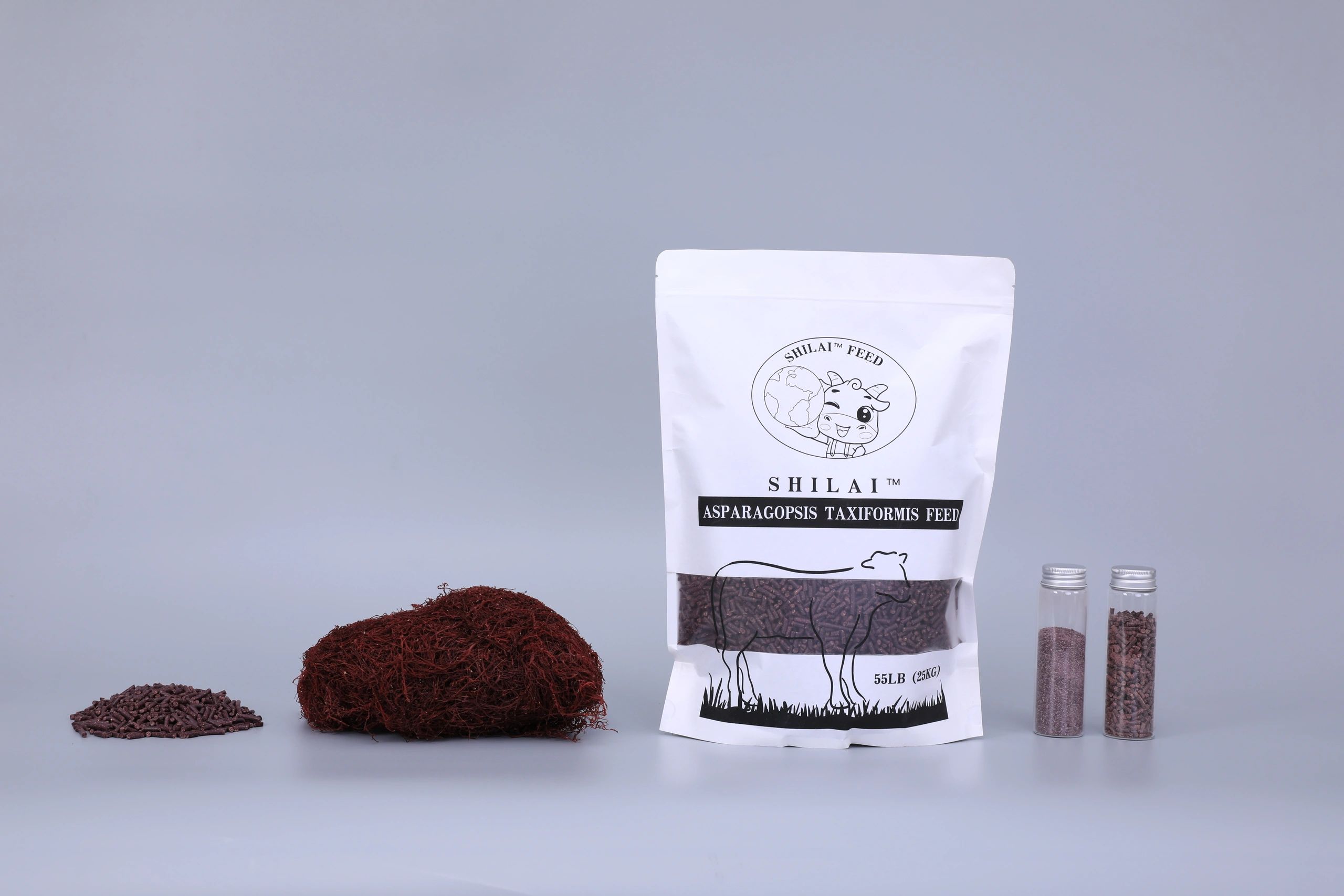
Farming worldwide represents a substantial fraction of greenhouse gas emissions, principally from animal husbandry.
Because methane traps far more heat per molecule than carbon dioxide, its emissions are particularly harmful to the climate.
A red seaweed called Asparagopsis taxiformis has surfaced as a potential game-changing tool to lower methane produced by grazing animals.
The alga carries a bioactive agent that inhibits the rumen microbes responsible for methane, lowering emissions from animals.
Integrating Asparagopsis taxiformis into livestock feed has delivered encouraging trial data that point toward meaningful reductions in livestock methane.
- The seaweed further supplies a set of advantageous outcomes that extend past methane mitigation.
- Elevated animal welfare and condition
- Opportunities to develop sustainable aquaculture-driven industries
While more research and development remain necessary to confirm long-term impacts, Asparagopsis taxiformis represents a highly promising sustainable mitigation tool.
Unleashing the Benefits of Asparagopsis taxiformis Powder for Feed Applications
A powdered or concentrated form of Asparagopsis taxiformis has the potential to reshape animal feed approaches and outcomes.
The alga packs biological and nutritional characteristics that support better animal outcomes and farm results.
Including A. taxiformis powder in diets has demonstrated methane-reducing effects in trials and can deliver essential dietary elements.
Further rigorous research is crucial to optimize dosage, processing, and long-term safety to unlock full commercial potential.
Asparagopsis taxiformis as a Catalyst for Sustainable Animal Farming
The species is increasingly seen as an intervention to lessen the environmental footprint of conventional livestock production.
Adding the seaweed to rations may deliver substantial methane mitigation and reduce farms’ overall climate impacts.
Experiments have shown possible improvements in animal condition and performance when Asparagopsis is included in diets.
Further validation at scale and over time is required, yet the early science provides a compelling signal.
Using Asparagopsis as a Feed Additive to Reduce Methane

This red alga is being developed as an approach that can substantially cut methane produced by grazing ruminants.
Compounds in Asparagopsis act on rumen microorganisms to suppress methanogenesis and lower methane output.
- Research trials have demonstrated that Asparagopsis can reduce methane by substantial percentages in controlled studies.
- Adopting Asparagopsis in feeds offers an eco-friendly option to address methane from livestock.
- There is growing industry momentum toward trialing Asparagopsis as part of feed strategies.
Asparagopsis: The Seaweed Transforming Livestock Production
Ocean-sourced Asparagopsis taxiformis is gaining recognition for its capacity to reduce methane in ruminant digestion.
- Studies incorporating Asparagopsis have recorded meaningful methane decreases, signaling potential for environmental impact reduction.
- The development offers a hopeful route to balance food security and environmental protection through methane mitigation.

In the search for scalable climate solutions, Asparagopsis is highlighted as a promising and practicable methane mitigation tool.
Streamlining Asparagopsis taxiformis Feed Applications to Maximize Methane Benefits
Work is underway to determine optimal processing methods and inclusion rates to enhance A. taxiformis effectiveness.
The Science Behind Asparagopsis taxiformis's Methane-Lowering Effects
The methane-lowering phenomenon is linked to the seaweed’s interaction with methanogenic archaea in the rumen, reducing their activity.
A key active molecule, bromoform, is implicated in inhibiting methanogenesis, though research continues into alternatives and safety profiles.
Blending Asparagopsis into Diets for More Sustainable Farming
The alga’s nutrient composition plus its methane-mitigating constituents support its potential as a feed ingredient.
The seaweed’s inclusion can enrich feed nutrient profiles, support gut health, and exhibit antimicrobial or immune-supportive properties.
Asparagopsis taxiformis: A Natural Solution for a Greener Food System
This red alga provides a promising, nature-inspired approach to lower the environmental cost of animal-based food production.
- Moreover, the species supplies nutrients that can enhance the dietary profile of feed formulations.
- Experts are studying how to deploy Asparagopsis across aquaculture, livestock, and feed manufacturing sectors.
Widespread incorporation of Asparagopsis into feeds could materially lower the environmental burden of livestock farming.
Asparagopsis Feed Inclusion: Positive Effects on Health and Productivity
The seaweed is gaining recognition for potential dual benefits: emissions reduction and enhancements in animal performance.
Findings indicate the seaweed may improve digestive efficiency and feed conversion, positively affecting growth metrics.
Research suggests potential antioxidant and immunological benefits that could improve overall animal welfare.
As markets prioritize sustainability, Asparagopsis is emerging as an attractive solution pending further research and industry rollout.
Asparagopsis in Methane-Cut Feeds to Help Achieve Carbon Goals
Facing intensifying expectations to curb emissions, farming may turn to Asparagopsis as part of its mitigation toolkit.
- Researchers identify the algae’s bioactives as agents that hinder methanogenic activity in the rumen, decreasing methane formation.
- The experimental record includes promising findings of large methane cuts when Asparagopsis is incorporated into feeds.
Adopting this approach may offer a twofold benefit: greener feed and a pathway to transform agricultural emissions performance.